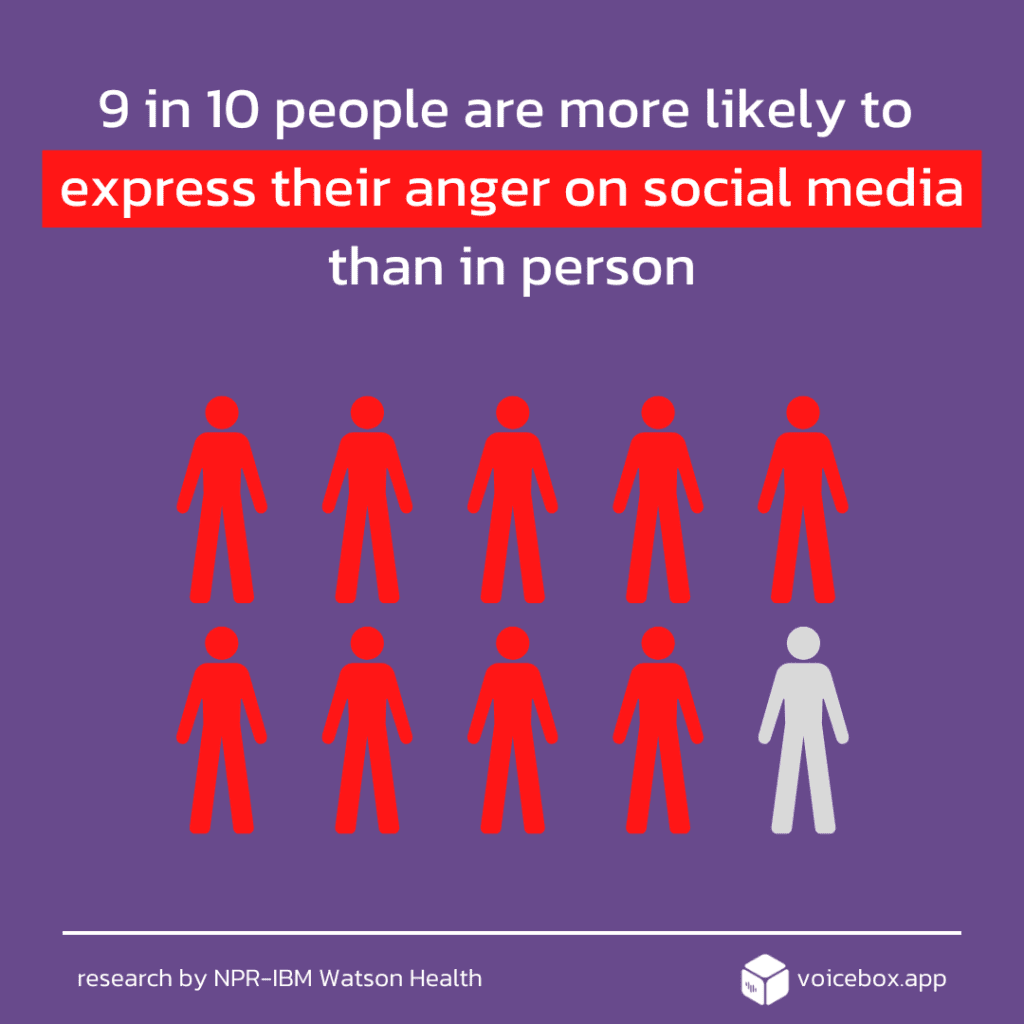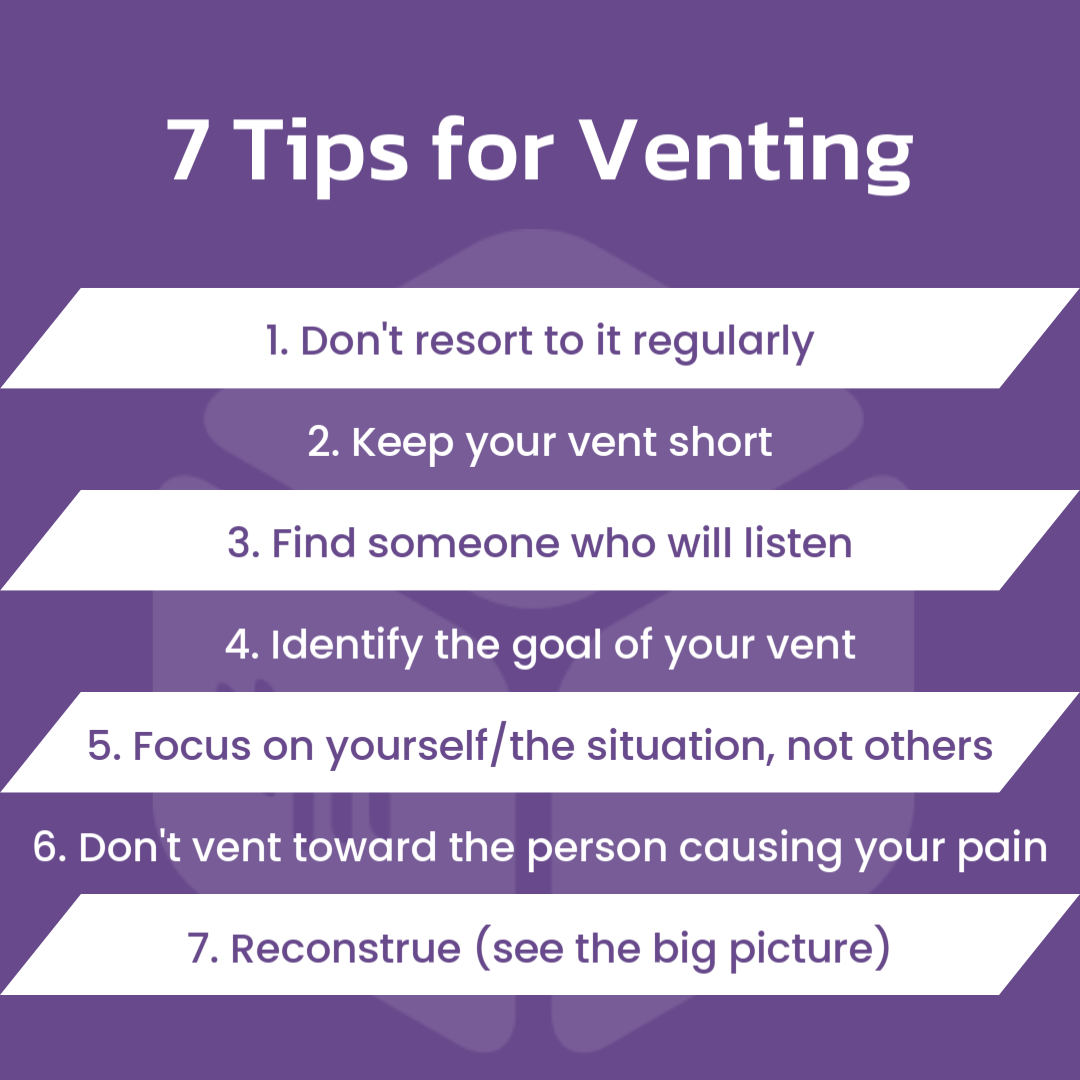Listen to the blog post here.
Last year, my apartment complex towed away my rental car. I had registered the temporary vehicle on the resident portal, but when I told them this, they said they didn’t recognize that system and that I should have gotten a separate pass from the office. Needless to say, they refused to help in any regard. This incident left me with a $400 bill and 2 hours wasted during the workday to go down to the tow yard to pick up my car.
We all have times of stress, sorrow, or frustration. From daily things like traffic and expensive groceries to one-offs like a fight with a friend or a towed car, the struggles of life can add up. Ideally, we do our best to tackle these problems head-on, but sometimes we’re helpless to do so. It then raises the question, what can we do in times like those?
Let it out. Get it off your chest. Blow off steam. Turns out, the cliches may have some validity to them. Dr. Firdaus S. Dhabhar, director of the Laboratory of Stress and Resilience in Health and Healing at the University of Miami, puts it like this. “Venting may reduce your stress, anger, confusion, or frustration. That can be beneficial.”
But wait! Like many things in life, the solution isn’t as simple as it seems. The way you vent has a big impact on how you end up feeling, as well as your ability to handle that situation and others moving forward. Dr. Dhabhar continues that “Prolonged or repeated venting can become unproductive”. Throwing a temper tantrum the likes of a two-year-old likely won’t help at all. And the one hearing your tantrum may not, shall we say, find it pleasant.
This delicateness of venting is what makes it an art form worth mastering. Do it right, and it becomes a productive tool to help you through your negative emotions. Do it wrong, and you risk feeling worse and potentially getting on the nerves of others.
I Can Complain
No one likes a negative Ned/Nancy. You may know someone like that in your family, at work, in school, on the internet, or wherever else. They complain about everything, and it brings the mood down. On the flip side, people generally gravitate toward those who imbue positive vibes and approach life with optimism.
As with anything, this isn’t a matter of either/or. It’s about not embracing the extremes. Life is filled with struggles, so feeling negative emotions is completely normal. Pretending like everything is fine is not. As Dr. Robin Kowalski puts it (quoted by Micaela Higgs here), complaining is “part of how we communicate”, but there’s a place and time for it.
Likewise, we don’t want to dwell too much on our negative emotions either. Complaining a lot about one thing or regularly about everything is not the way to go. This is especially true for the extreme sport of complaining known as venting. Venting means releasing your emotions in a powerful manner, and it can apply to many emotions, from anger to sorrow to grief to stress. So given its tricky nature, how do we vent effectively?

How to Vent
In today’s world, there’s a how-to for everything. Whether it’s something useful to several folks such as how to fix a toilet leak or a little less, shall we say needed, like how to plug a cord into an outlet. If you need help, chances are there’s someone willing to teach it. This didactic nature knows no bounds, to the extent that we will now discuss how to, *checks notes*, vent properly. Yeah, we’re doing this now.
Tip 1: Don't Resort to Venting Regularly
Ironically enough, the first tip on venting is not to vent much at all. Psychologist Dr. Jill Suttie relates the dark side of venting, stating that acting out our anger makes us relive it in our bodies, “strengthening the neural pathways for anger and making it easier to get angry the next time around.”
That’s what we here on the layman’s couch call a vicious cycle. It’s why I lead with this tip over all the others. Venting too regularly can ruin your temperament not only in that particular situation that caused your negative emotion but in similar moments after that. And then you vent more. And then you get angry more easily, so you vent more, and the cycle continues.
Instead, make venting a wise but rare choice in your toolset for dealing with negative emotions. Experts across the board recommend a variety of activities that can help you process your emotions in a healthier way, such as exercise, hobbies, music, meditation, taking a walk, and good ol’ sleeping. But if you choose to vent, then take into consideration the rest of these tips.
Tip 2: Keep Your Vent Short
The logic behind this tip is based on the point above on how venting regularly strengthens our neural pathways for the emotions we express. Prolonged venting can have the same effect. So if you vent, keeping it short and mixing in deep breathing can help you balance the positives from the burst without getting caught in the explosion of it.
The word venting as a means of releasing pent-up emotions surely comes from how vents work, which allow smoke and other gaseous material to escape a space. We can take the metaphor one step further because as the saying goes, where there’s smoke, there’s fire. If you vent too much smoke, you risk starting a fire within yourself.
Tip 3: Find Someone Who Will Actively Listen to Your Vent
Counselor Tina Gilbertson, author of Constructive Wallowing, writes “Any time we are sharing emotional content with someone, that is a vehicle for bonding” (quoted by Higgs here). Higgs follows that we’re especially fond of using complaining as a social tool.
From sites like Ripoff Report to FMyLife, people congregate all over the internet to join in venting. The key to making this a success, though, is having someone to actively listen. ThoughtHub by SAGU notes a finding by the University of Minnesota that “the difference between positive and negative venting can be focused on the ways in which the person hearing the vent responds, both through speech and action.” That can include words of affirmation, empathy, and perspective, as well as actions like eye contact, facing the speaker, and a hug. Much of what works depends on the next point.
Tip 4: Identify the Goal of Your Vent Session
It may not always be clear why someone is venting. Counselor Gilbertson continues, “It’s crucial, if you’re venting, to know that you’re venting and to tell the person you’re venting.”
From the standpoint of the venter, mindful venting (if there is such a thing) allows you to keep yourself in check. For example, if your goal is to blow off steam, then you’d want to stop yourself if you felt like you weren’t feeling better.
From the standpoint of the listener, active listening is the key. Most of the time, people aren’t complaining for the sake of complaining. There’s usually an underlying problem that needs to be fixed. Whether that’s insinuated or said outright, it’s our jobs as listeners to provide a fresh perspective on the struggle, a consoling shoulder, or whatever it is that the person is looking to get out of the vent sesh.
Tip 5: Focus on Yourself and the Situation, Not Others
In psychology, the fundamental attribution error refers to our tendency to blame someone’s mistakes on their character, whereas we blame our own mistakes on the situation. As you can imagine, this inevitably leads to pointing our frustrations at the others involved as opposed to the context. Surely there are times when people are at fault, but focusing on ourselves and the situation allows us to avoid two pitfalls.
First is what we’ve previously discussed, that continuous venting can strengthen negative emotions. If we direct those emotions at people, it makes working with them to find common ground and solutions far more difficult. It may even get to the point where seeing them or hearing their name elicits negative emotions within you. On the other hand, focusing on yourself allows you to take ownership of your role in the situation and your emotions.
Second is because you might cause your listener to feel those same negative emotions about that person. Whether or not that’s deserved is a separate discussion, but understanding the implications of this, especially when venting to a big audience, is important. We have seen many times when a post on social media exposing someone’s faults led to comment sections bullying that person online. This is just one example of what we can avoid by shifting our focus away from people and focusing on the situation.
Tip 6: Don't Vent Toward the Person Causing Your Pain
Extending on the point above, in order to focus on yourself and the situation, you should avoid venting to the person who you feel caused your negative emotion. Conversations like that will likely exacerbate the issue, lead to finger-pointing, and further deteriorate your relationship with that person and your state of mind.
Instead, use venting as an opportunity to air out the fumes, reflect on the situation, then, when you’re in a calmer state of mind, approach that person in a more level-headed conversation. And only do that if you feel it will help.
Tip 7: Don't Just Recount, Reconstrue
Attorney Gail Cornwall and Psychologist Juli Fraga point out research by Dr. David Lee at the University of Buffalo that found how “chatting with friends can bring closure when they help you reconstrue an event, rather than just recount it.” They differentiate reconstrue to mean “broadening your perspective to ‘the grand scheme of things’ and identifying what you’ve learned.
Tips 3 and 4 tie heavily into this, because it’s not just enough to have someone there to listen. The listener should help the venter get something positive out of their vent. Together, they may be able to find a way to remedy the problem. Even if the situation is helpless, there may still be learnings or actions that can help avoid or better tackle similar situations in the future.
As psychologist Dr. Ethan Kross puts it (quoted by Dr. Suttie here), “If all we do is vent, we don’t address our cognitive needs, too. We aren’t able to make sense of what we’re experiencing, to make meaning of it.” Effective venting isn’t just about an emotional release. It’s about getting to the root of the issue and growing it in a different direction.

Vent on Voicebox
According to a 2019 NPR-IBM Watson Health poll, 9 out of 10 people are more likely to express their anger on social media as opposed to in person. A major inspiration of Voicebox is to be able to express ourselves more naturally with the power of our voices. However, as is a common theme in many of these blog posts, words matter. Venting on social media is a tricky situation, but I believe that with the above tips in mind, we can make it work for us. To express our emotions to a community that helps us process them and ultimately feel better.
I experienced a lot of frustration with my towed car. Back then, Voicebox didn’t exist so all I had was to yell in the echo chamber that is my mind (also my sister who drove me to the tow yard, shoutout). Woe isn’t me. Over time, you look back on these things and they likely don’t bother you, but we shouldn’t diminish the significance of how we feel in those moments. Rather, we should look for ways to better process our emotions. To find a way to ventilate out the hot, toxic fumes out of our bodies and let in the calming, fresh air of solutions. Sometimes a good venting session hits the spot. So vent, but vent responsibly.
Sunday Blog is a series where we discuss the many facets and functions of the human voice.

